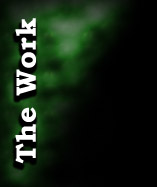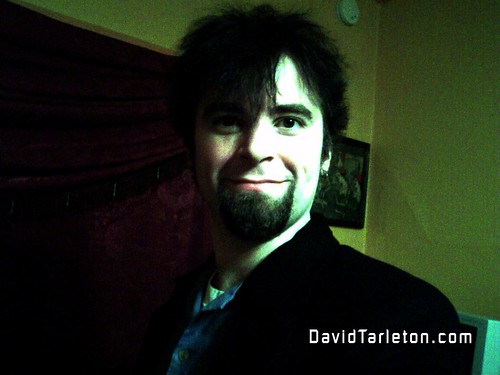There's more to the heavens and the Earth, Horatio, than are dreamt of in your philosophies.
But along came these cats in the 17th-18th centuries -- Newton, Boyle, Locke, Franklin, Jefferson. They made up the "Enlightenment" - a movement away from superstition and intuition into cold, hard facts and logic.
At the heart of it all is the almost religious belief in the truth of the "Scientific Method." They considered themselves Empiricists who would only trust what they could measure and observe concretely with their own senses repeatably in the laboratory with control groups. This way of thinking is behind our technological advances of the last few hundred years.
The problem with the so-called objectivity of the Empiricists is that it presumes that what we can perceive directly through the five senses has greater weight than those things we cannot perceive through the senses.
The issue with that preference is that we know that human senses are really quite limited, at best.
Visible light, the radiation that allows us to see, is only the tiniest fractional piece of the huge electromagnetic wave spectrum. It’s all the same thing: radio waves, x-rays, visible light, ultraviolet, infrared, microwaves, etc. They are all just different wavelengths of the SAME THING. There’s this huge array of things actually happening right in front of you, with no need to invoke the supernatural, happening invisibly right now in front of you right now. If your eyes were more sophisticated, you’d be able to see it.
The same with sound. The human ear hears from 20Hz to 20,000Hz (more or less). Cats can hear up to 60000Hz, and the Noctuid Moth can hear up to 240,000 Hz. The sound is there, we just can't perceive it.
Or smell – just look at the example of dogs to see the limitations of the human nose.
The “Scientific Method” is really quite useful, to a point. But it presupposes that if an event is not recreatable, in the lab, by someone else, then it never happened.
Our minds create what we perceive as reality. I remember in graduate class on sound, they explained that, in a movie, a very loud sound will actually mask the sound that came out on the track directly BEFORE IT.
The sound that had already happened in time can seem, to the human brain, to come AFTER the extremely loud sound (like an explosion, say), and the explosion seems to come earlier.
Apparantly, our brain just kinda fills in the details in what you see in front of you, anyway.
Even our perception of time offers no objectivity. Einstein, to explain the theory of relativity, once said, “When a man sits with a pretty girl for an hour, it seems like a minute. But let him sit on a hot stove for a minute-and it's longer than any hour. That's relativity." For us, time does not always move at a constant rate.
To paraphrase the Bible, we see as through a glass darkly. Quantum mechanics and chaos theory suggests that what we perceive as an ordered universe is quite random and chaotic.
We should not be so arrogant as to presuppose that only the direct evidence of our limited senses is the truth. There are things, actual experiences out in the world, which are not replicatable in the laboratory. I think it would be difficult to quantify the mystical experience, and replicate it with a control group.
There is an incredible hubris in athiesm, it seems to me.






 Email me.
Email me.



0 Comments:
Links to this post:
Create a Link
Post a Comment
<< Home